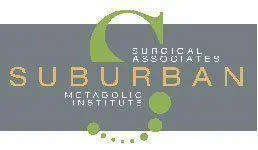Acid reflux is a common digestive disease in which stomach acid or bile irritates your esophagus. Anytime acid reflux is chronic or uncontrolled, it is known as gastroesophageal reflux disease (GERD). Generally, you can treat it with diet, medications, and other lifestyle changes. However, suppose these changes aren't relieving your symptoms. In that case, the doctors at Suburban Surgical Associates/Suburban Metabolic Institute in Berwyn, La Grange, and Elmhurst, IL, can discuss possible surgical options to alleviate your discomfort.
When Should You Consider Surgery?
The first step to treat acid reflux is diet and lifestyle changes, such as quitting smoking. Over-the-counter and prescription medications are also used. Medications, such as antacids and Pepcid, are the most common. When conservative treatments are no longer preventing symptoms, surgery may be the next best option. If GERD is left untreated, it can lead to an increased risk of esophageal cancer.
Surgical Treatment Options to Treat Acid Reflux
The most common surgical treatment for GERD is called fundoplication. With this procedure, the surgeon tightens an area of your esophagus to strengthen your stomach's sphincter. Surgery can be done laparoscopically, which is less invasive or may be performed as open surgery.
If you have any scarring or ulcers in your esophagus or stomach, a common drawback to having acid reflux, the physician can correct them with surgery, also. The long-term success rate for surgery is very promising.
There are a few other surgical options to treat GERD. You and the surgeons at Suburban Surgical Associates/Suburban Metabolic Institute will be able to determine which procedure is best for you.
What Can You Expect Before and After Acid Reflux Surgery?
Like any other surgical procedure, your doctor may ask you to only take in clear liquids 1-2 days before surgery, no eating the day of surgery, and you may need to take bowel prep to cleanse your bowels the day before.
You will likely need to stay briefly in the hospital after your surgery, even if done laparoscopically. Because it's a less invasive approach, patients tend to stay in the hospital a few days less than patients who underwent an open fundoplication.
When you're back eating again after surgery, it is essential to know that this surgery's most common side effect is the inability to vomit, belch, or burp, leading to more bloating and flatulence. Over time, the symptoms lessen, and people can live a happy life with minimal discomfort. Dysphagia, or trouble swallowing, may also occur immediately after surgery but should resolve within a few months.
In most people with acid reflux, surgery relieves or eliminates their symptoms. If you've been diagnosed or experiencing uncontrollable symptoms, make an appointment with Suburban Surgical Associates/Suburban Metabolic Institute. They have offices available to you in Berwyn, LaGrange, and Elmhurst, IL. To schedule, call us at (708) 484-0621.
